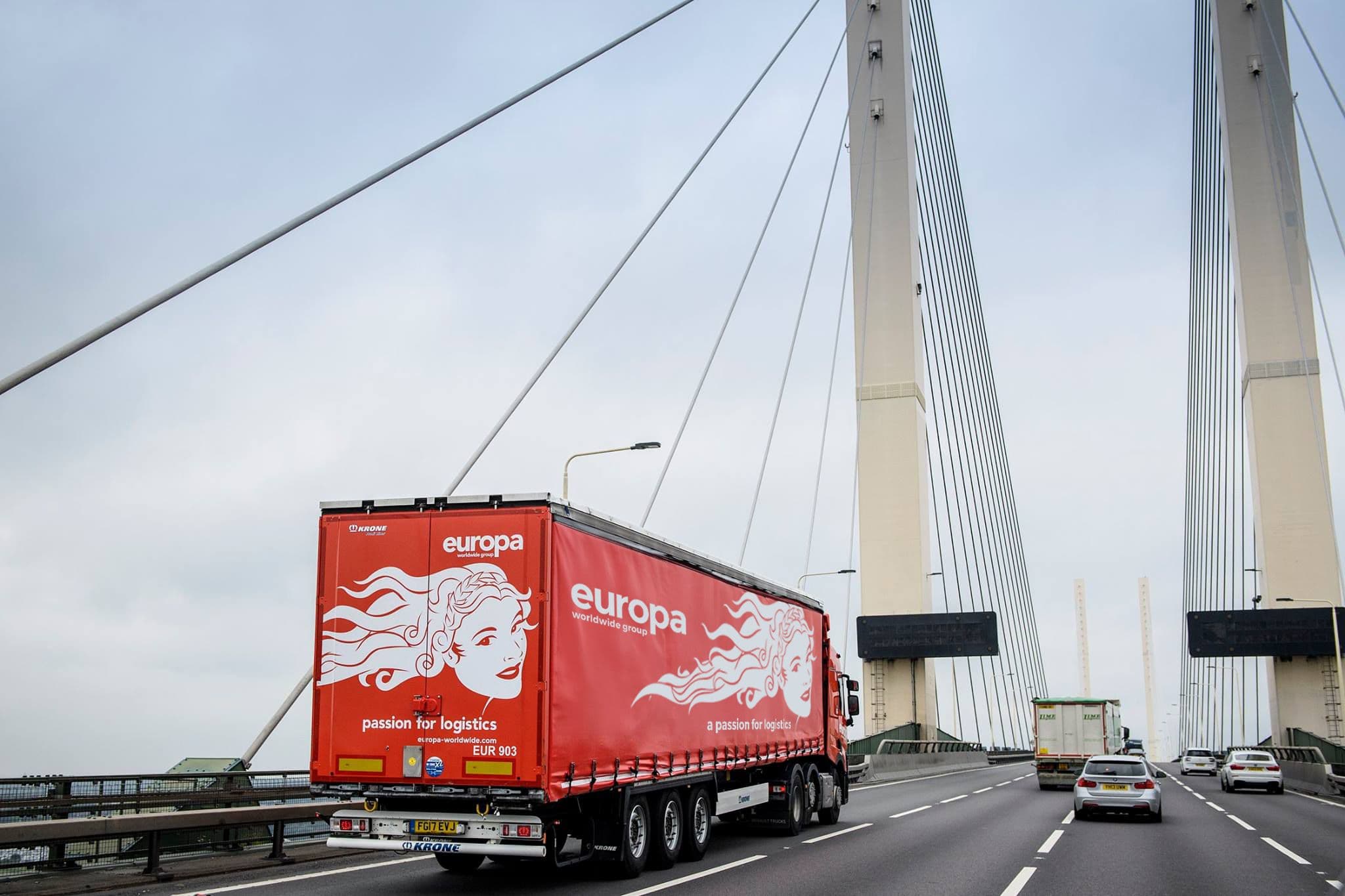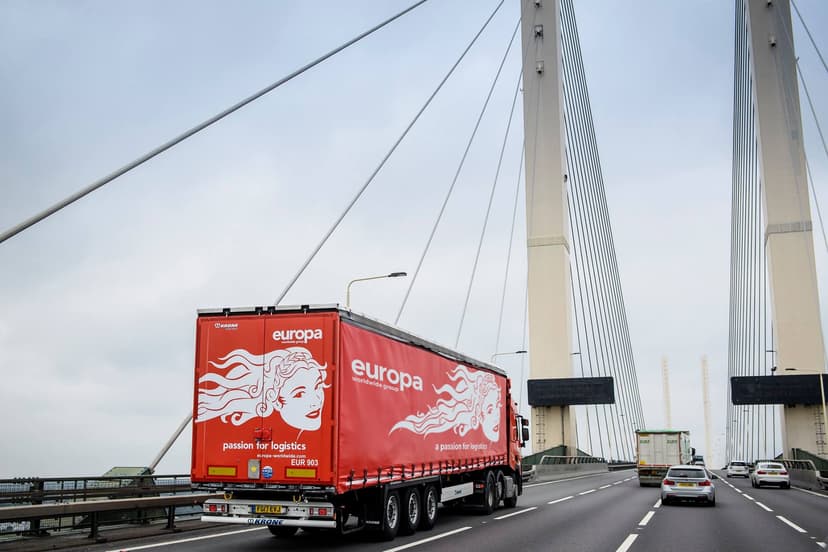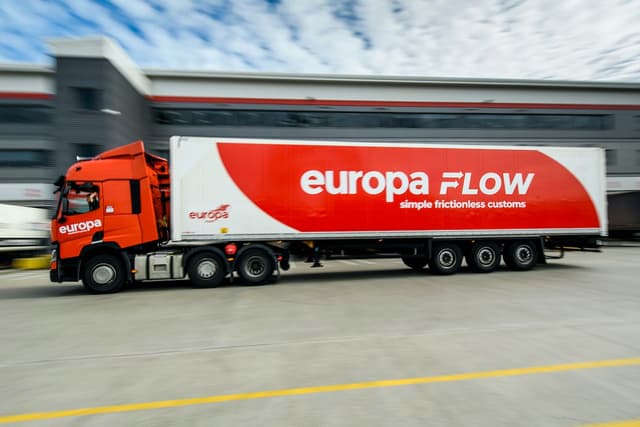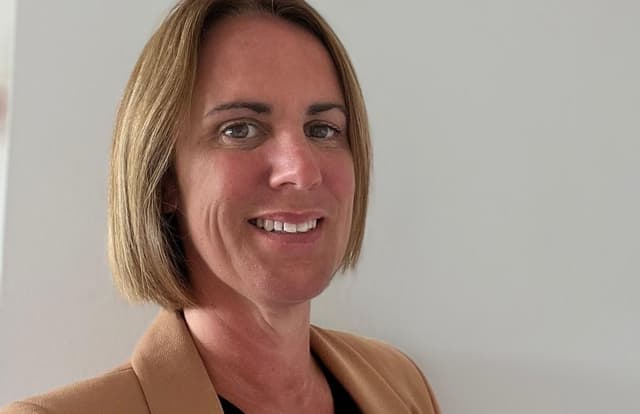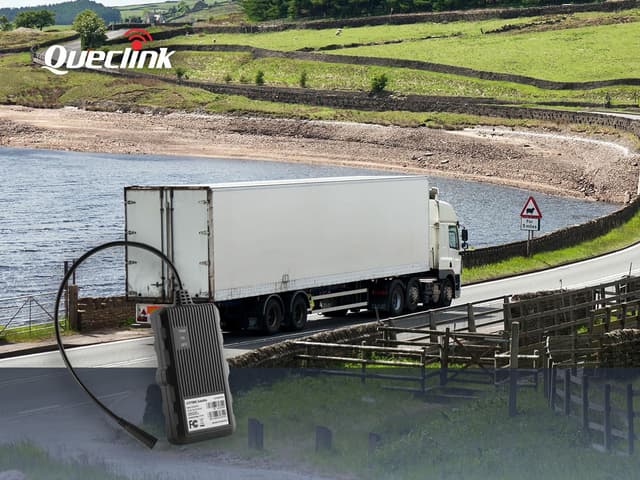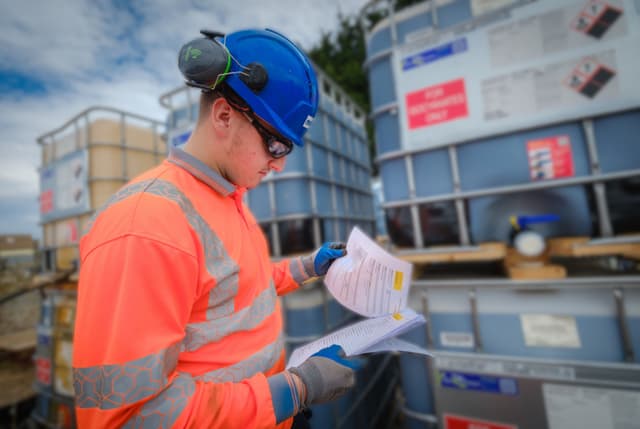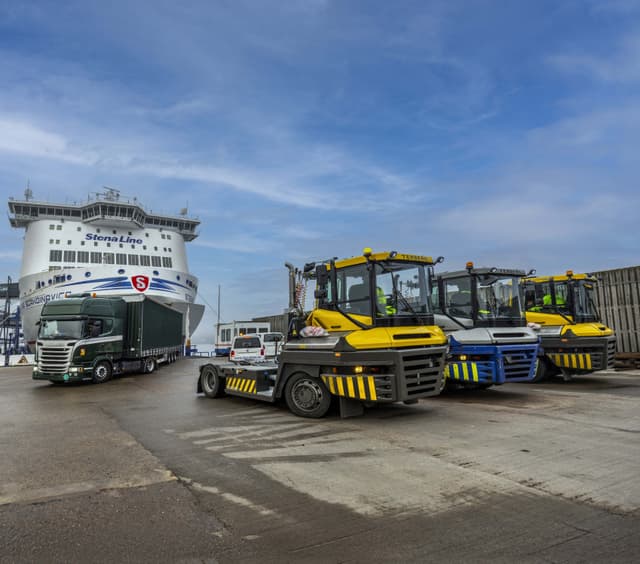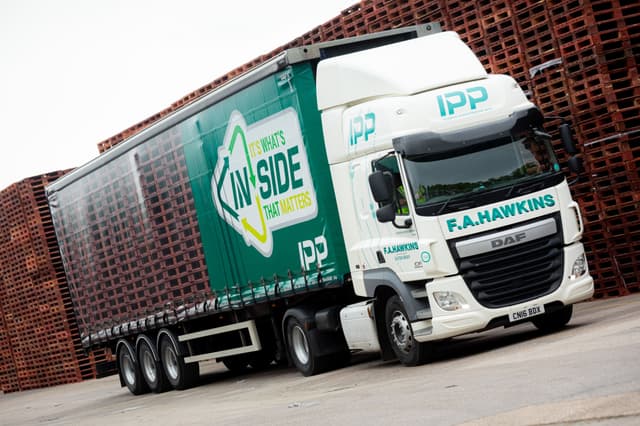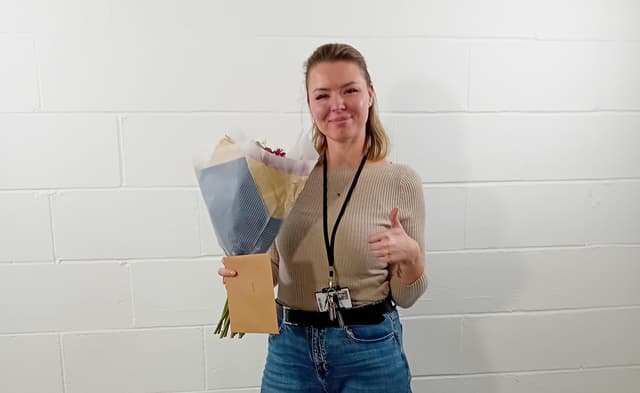As the campaign for the proposed Lower Thames Crossing continues at pace, leading logistics provider Europa Worldwide Group has become one of the latest British business to lend its voice to the issue.
According to National Highways, 50 million vehicles currently use the Dartford Crossing annually of which 40 per cent of which are goods vehicles. Meanwhile, Logistics UK estimates that up to £200 million is lost every year in productivity due to congestion at the Dartford Crossing, with businesses across the country feeling the impact of delays to deliveries.
With a large proportion of the UK’s port freight relying on it for transportation of goods, Europa experiences regular frustration with congestion in and around Dartford, where its headquarters and 1Hub is located. This was recently discussed in a video, created alongside National Highways,
Europa Worldwide Group’s 27k sq. ft ‘1Hub’ – the largest European groupage hub in the UK – is strategically located next to the crossing, a key trading route for British businesses, and the reason the site was selected. The company sees more than 200 truck movements every 24 hours in and out of its facility and it’s Dartford HQ is home to more than 360 employees from the local area.
As a key operator in the UK supply chain, Europa has been chosen as a leading organisation to back the campaign for the proposed 23km Lower Thames Crossing, which is being supported by Dartford MP, Jim Dickson.
Kirsty Dean, Marketing & Communications Director at Europa Worldwide Group, said: “It isn’t uncommon for Europa to witness severe traffic delays on the Dartford Crossing, particularly if there are problems on the M25 (the UK’s busiest motorway).
“On December 12th, 2024, at the height of Europa’s pre-Christmas peak, half of the company’s drivers were still trying to return to Dartford’s ‘1Hub’ at 20:30 following an M25 closure. During peak periods, when our freight services are in high demand, this really puts pressure on our local infrastructure.
“Congestion can cause thousands of pounds worth of delays and contingency plans for us, our customers and British business. Delays in transit pose a risk to reputations, not to mention the financial consequences of having to make alternative arrangements to meet consumer demand.
“There is also a huge personal cost to local people, who are having to spend extra hours on the road. It’s not uncommon for our colleagues in Dartford to have difficulty with things like school pickups and drop offs, having to rely on family members if they’re not going to make it on time. Quite often, the traffic they face can be soul-destroying before their working day has even started.” Kirsty added.
“We believe that the Lower Thames Crossing promises a significant lifeline, streamlining connections across the UK, into Europe and improving transit times.”
A decision on whether the proposed 23km Lower Thames Crossing will go ahead was delayed for the third time in October, as the Government considers the application further. While certainly a sizable infrastructural development, there are many trading benefits which could alleviate some of the strain on the local infrastructure, particularly during busier periods.
National Highways estimates that the Lower Thames Crossing will be vital for reducing transit times, providing a new route for freight, connecting the North, Midlands and Short Straights (where over half of all goods traded between UK and EU are transported). In the video, Europa discusses how an alternative route over the Thames is critical for its local hub and work across the whole country.
Taking a proactive stance on its campaign for the Lower Thames Crossing, Europa Group recently joined the Lower Thames Crossing Consortium.
Jim Dickson, Dartford MP and Consortium leader, said: “The coming together of over 75 major businesses shows unwavering support for the Lower Thames Crossing and adds weight to the urgent call for a go ahead from Government.
“This project is more than a road – it is a gateway to new markets, a catalyst for job creation, and a solution to the congestion that constrains constituents and our economy. We need to get on with the job and get the crossing delivered, doubling capacity over the Thames east of London and kick-starting economic growth in the South East.”
